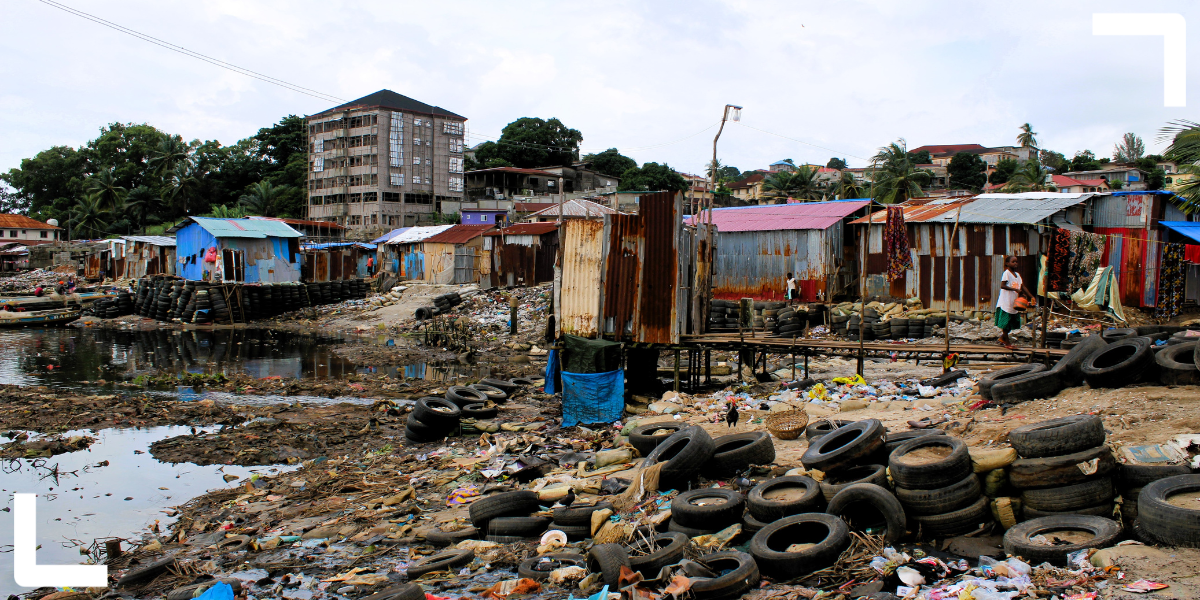Despite its negligible contribution to the problem, low levels of socioeconomic development make Africa highly vulnerable to the impacts of climate change. According to IPCC analysis, the vulnerability and exposure of urban areas in Africa to climate change are increasing, making this a critical issue in all of the cities ACRC is working in.
African cities are already experiencing the effects of changing climatic systems and associated impacts on various elements of urban life – spanning urban ecologies, infrastructure, households, businesses and resource flows. As climate change impacts increase, cities will experience more intense heatwaves, droughts, sea-level rise and storm surges (for coastal cities), with increased rainfall intensity contributing to flooding events.
For ACRC research, climate change was a key crosscutting theme, which we investigated across all of our 12 cities and eight urban development domains. The synthesis report was led by ICLEI Africa and co-authored by Hayley Leck, Zakiyya Atkins, Luka Dreyer, Yakhuluntu Dubazana, Clara Marais, Lorena Pasquini, Tashi Piprek, Meggan Spires and Kate Strachan. It analyses the implications of climate change across cities and proposes practical solutions to address the complex, systemic problems that are currently being created.
Key findings include:
- Growth of informal settlements with inadequate risk-reducing infrastructure and services, as well as profound political marginalisation, remains a rising challenge for all the ACRC study cities. Informality leaves many residents exposed to precarious living and working conditions that exacerbate their vulnerability to a range of risks, including climate-related risks. Participatory planning processes for urban development are one solution for building resilience to climate risks.
- Decent and affordable housing offers increased resilience for vulnerable groups to climate-related risks, while also contributing to crime prevention, linking to the safety and security domain. However, limited access to affordable housing options and housing finance means that low-income communities predominantly live in low-quality housing located in unplanned neighbourhoods, increasing their exposure and vulnerability to climate-related risks.
- The youth and capability development domain research highlights how youthful populations in African cities present significant opportunities for economic and social development. Given the need for additional investments in education, training, economic development, entrepreneurship and technology access for youth, this investment should be conducted in a way that would allow youth in African cities to position themselves at the forefront of nascent green economies, and can solve critical problems, such as waste management.
- Existing safety and security risks in African cities are further aggravated by climate change, underscoring the need for integrated solutions that simultaneously address the challenges of climate change, security and the wellbeing of vulnerable populations.
- Climate change has major implications for food and nutrition security and yet, there are few linkages made in cities between urban nutrition issues and the diversity, quantity and quality of food production under climatic changes (which affects both food and nutrition security).
One of the common denominators across all ACRC cities is the high proportion of low-income residents, particularly those who reside in informal settlements, who are most at risk from climate change. Poverty alleviation through local job creation is critical to reduce exposure and vulnerability to climate-related risks, and efforts to improve labour productivity in African cities must explicitly address the challenges and opportunities of climate change.
The nexus between incremental housing production, building materials and the local employment and skills development of youth presents a significant opportunity, offering considerable potential for upscaled training and education in environmentally friendly, energy-efficient and climate-resilient housing construction which is both decent and affordable.
In order to simultaneously meet poverty alleviation, adaptation and mitigation goals in urban Africa, the role of micro- and small-scale goods and service providers – particularly in the informal sector – cannot be overlooked.
Understanding how cities and structural economic change interconnect is key to strengthening the New Urban Agenda, which promotes economic transformation, inclusive growth and prosperity. Adding a climate change lens to this is a pressing priority. Economic development and structural transformation should leverage low-carbon technologies to position African cities as global leaders in climate-resilient development.
Header photo credit: ICLEI Africa. A coastal informal settlement in Freetown, Sierra Leone.
The African Cities blog is licensed under Creative Commons Attribution-NonCommercial-NoDerivatives 4.0 International (CC BY-NC-ND 4.0), which means you are welcome to repost this content as long as you provide full credit and a link to this original post.


